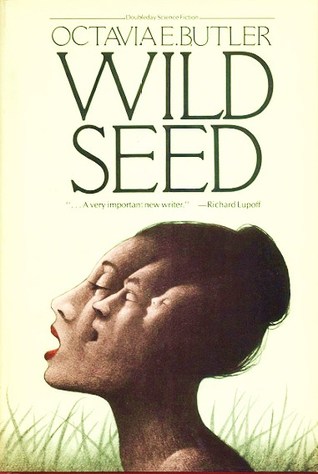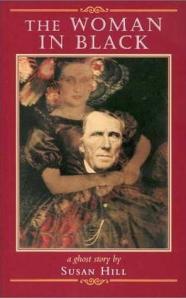They are the only two immortals in the word: Anyanwu, an Ibo woman who can repair her body at will, and Doro, a spirit who possesses bodies and devours souls. They hate each other with a passion; the loneliness of immortality makes them need each other.
I’ve kept hearing Octavia Butler’s stuff is really good. I only waited this long to read something of hers because I didn’t know where to start. Butler broke into print in 1976 with Patternmaster then wrote successive prequels to it. Wild Seed is the earliest in the sequence of events and regarded by John Pfeiffer as the best book she ever wrote.
The language of this book struck me right away. Check out this passage near the beginning:
Anyanwu looked away, spoke woodenly. ‘It is better to be a master than to be a slave.’ Her husband at the time of the migration had said that. He had seen himelf becoming a great man – master of a large household with many wives, children and slaves. Anyanwu, on the other hand, had been a slave twice in her life and had escaped only by changing her identity completely and finding a husband in a different town. She knew some people were masters and some were slaves. That was the way it had always been. But her own experience taught her to hate slavery. She had even found it difficult to be a good wife in her most recent years because of the way a woman must bow her head and be subject to her husband. It was better to be as she was – a priestess who spoke with the voice of a god and was feared and obeyed. But what was that? She had become a kind of master herself. ‘Sometimes, one must become a master to avoid being a slave,’ she said softly.
I think I count a dozen words in that entire paragraph with French or Latin origins. The rest of it is Ango-Saxon, emotional and gritty. She introduces complex ideas about slavery, gender, dominance and submission with deceptively simple language. And she keeps it up this way for an entire novel.
Wild Seed is also about game theory, since Anyanwu is trapped in a game with Doro she can’t win. And it’s about our relationship with our bodies, since Anyanwu’s super power is her body and Doro has no body at all. He’s fascinated with breeding human beings to each other because he’s impotent. The book is everything N. K. Jemisin was trying to cover with The Hundred Thousand Kingdoms, but Octavia Butler is a master at it. The book will make you think. A lot of it you’ll wish you weren’t eating lunch while you were reading.
Wild Seed feels like an epic love story even though it’s a fairly short book. The ending was abrupt, especially for me, because my edition includes a big chunk of Mind of my Mind. I got three quarters of the way through the book, saw the end, and had to page backward looking for a climax.
Other issues include that you can tell it’s a prequel. Many aspects of the psychic humans are really only in there because of the psychics later in the series. And Doro’s breeding program has a surprising lack of Asian people considering that a) most people in the world are Asian and b) Doro’s willing to take advantage of all the genetic material he can get. But these are quibbles. This is a beautiful, thought-provoking, challenging book.



